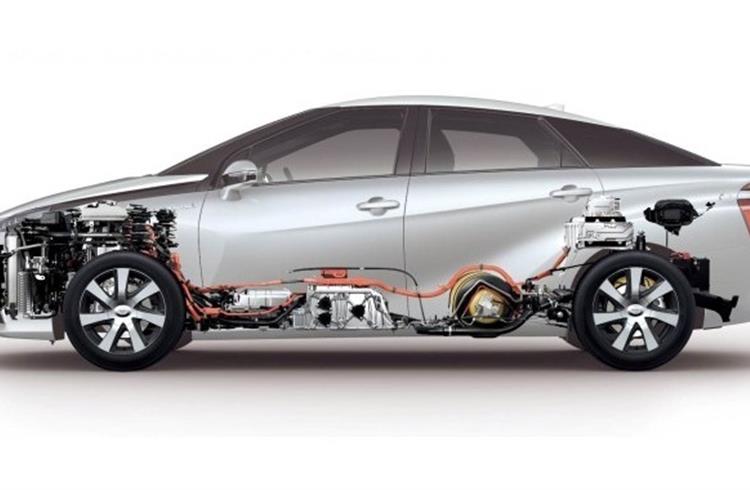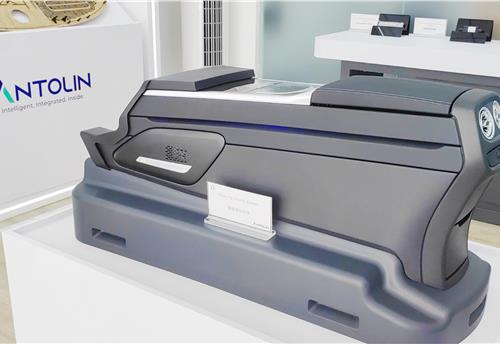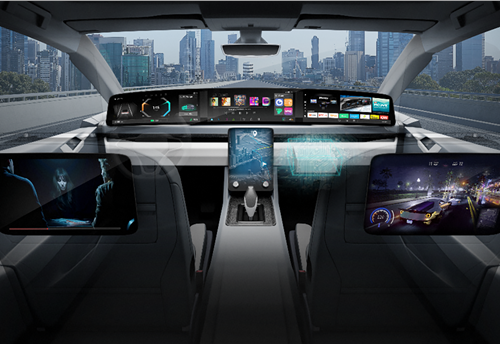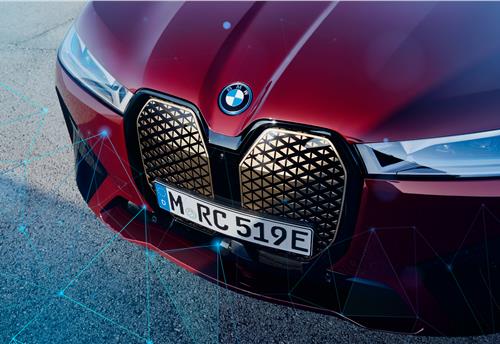Toyota, Honda and Nissan join hands to develop Hydrogen Fuel Cell infrastructure
With the support of the Japanese government for hydrogen stations, the joint project aims at attracting newer companies to enter the hydrogen supply business.
Three of the biggest Japanese carmakers in the world, Toyota, Honda and Nissan have agreed to join hands for the development of the Hydrogen Fuel Cell Vehicle (FCV) technology and infrastructure in Japan.
Not an entirely new concept but there are rarely any FCV vehicles on the road as of now. Toyota released its first FCV Mirai in late 2014, meanwhile Honda is bound to release one in 2016 and Nissan is making plans for release as early as 2017.
Where three of the biggest contenders in the market have agreed to work on a project together, Hitoshi Kawaguchi, senior vice president of Nissan, said the companies will continue to compete on products, but they must come together on supporting hydrogen fueling stations and other needed infrastructure.
The technology
A fuel cell is a combination of hydrogen and oxygen in order to produce electricity, much like a battery. They convert energy produced by a chemical reaction into usable electric power. However, the fuel cell will only produce electricity as long as its fuel i.e. hydrogen is supplied.
FCV's use compressed hydrogen gas, that when combined with oxygen and drawn through an electrolyte, creates electricity. The electricity is used to power an electric motor. The only exhaust is water vapour.
The aim
With the support of the Japanese government for hydrogen stations, the joint project aims at attracting newer companies to enter the hydrogen supply business.
Toyota, Nissan and Honda announced on June 1, that they will increase efforts to produce more hydrogen fuel cell vehicles and said they will work together to build more fueling stations to support them. Financial assistance will be provided by the Research Association of Hydrogen Supply/Utilization technology (HySUT), which will be setting up projects to stimulate demand for FCVs.
In June 2014, the Japanese government unveiled its strategic road map for hydrogen and fuel cells, which involves subsidising the construction of hydrogen stations and reviewing regulations. In February, they decided to partially subsidise hydrogen station operational expenses in order to help create new demand for FCVs.
There are currently 23 hydrogen-fueling stations in Japan, but hundreds of more are planned.
The benefits
Fuel cells have various advantages compared to conventional power sources, such as batteries and combustion engines.
- They have a higher rate of efficiency compared to diesel or gas engines
- They operate silently
- They can eliminate the pollution caused by engines and burning of fuels
- Maintenance is simple
- No greenhouse or gas emissions
- Reduced dependency on gas
Around the globe
The US has also put a considerable amount of effort towards FCV technology and 28 FCV stations are already planned to be built by the end of 2016 bringing them to a total of 48 stations.
Toyota has partnered with FirstElement Fuel to build refuelling stations in California and with hydrogen fuel provider Air Liquide to build a network of 12 stations throughout Connecticut, Massachusetts, New Jersey, New York and Rhode Island this year.
Korean automaker Hyundai will not be working towards FCV technology instead they plan to strengthen and attract market attention towards their range of electricity powered vehicles. Toyota claims and is quite confident about that fact that, hydrogen fuel cell technology is the future.
RELATED ARTICLES
Antolin unveils sustainable tech solutions at Beijing Motor Show
In line with its China market roadmap, Antolin is showcasing its latest advances in lighting, HMI, electronics, and sust...
Visteon wins $1.4 billion in new business in Q1 2024, launches 26 new products
Digitisation of vehicle cockpit megatrend is a key growth driver for Visteon with over $400 million of displays wins; Vi...
BMW uses Catena-X ecosystem using real-world CO2 data to enhance quality
Working together with partners and suppliers, the company has modelled a complete data chain for the first time using re...





 By Autocar Pro News Desk
By Autocar Pro News Desk
 10 Jun 2016
10 Jun 2016
 5923 Views
5923 Views









